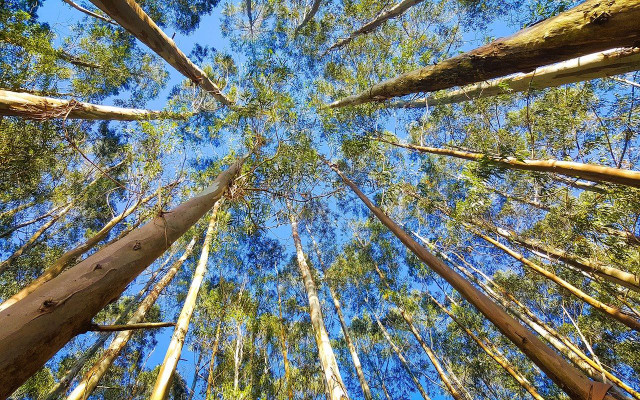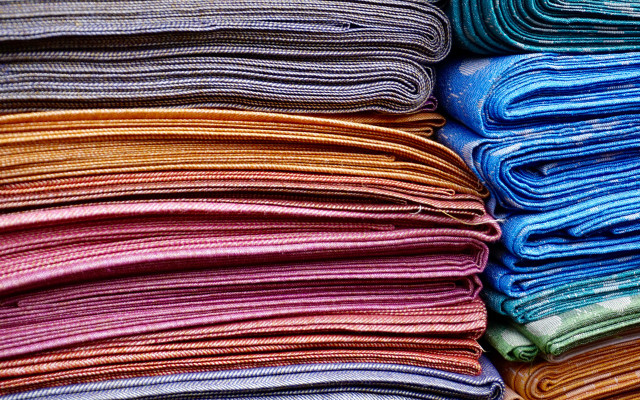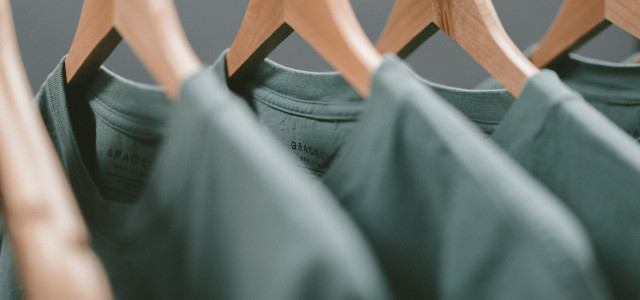Tencel has been creating quite a splash as a sustainable fabric, but is there more to it than meets the eye? We’ll look at what Tencel is, the environmental impact of lyocell fabric, and what you should watch out for.
There are certain products in the US that are known by a brand name, rather than the product itself. Some common examples include using the term Kleenex for tissues, Band-aids for bandages, or Chapstick for lip balm. In the same way, Tencel is actually a lyocell fabric brand owned by the Austrian company Lenzing.
So what exactly is lyocell? Lyocell is a man-made fiber made from wood cellulose or pulp, which means it is neither a completely synthetic, nor a natural fiber. Wood pulp is a natural product, but before it can be processed into fibers, it must first be broken down chemically. If that sounds suspicious to you, you aren’t alone. That’s why we’ll take a closer look at how exactly Tencel fabric is made.
Sustainable Fabric Production

Not all lyocell fabrics are created the same way. For the purposes of this article, we’ll be focusing on the most common brand currently in use by sustainable companies: Tencel. Tencel fabric is made using eucalyptus wood pulp harvested from sustainably managed forests. The resulting fabric is certified as compostable and biodegradable, meaning that in theory, it can return to the earth from which it came. The company takes pride in the reputation of its sustainable closed-loop production process in which 99.5% of the water and solvent used is recycled.
The solvent used in the production process is N-Methylmorpholine N-oxide (NMMO). This chemical is significantly less toxic than those used in conventional fabric production, which often include sodium hydroxide solvents. And, because Lenzing manages to recycle nearly all of the solvent used, this method of fabric production is significantly more sustainable than conventional methods.
Tencel Fabric: Environmental Impact
For the environment, there are definite advantages to Tencel lyocell fabric over traditional synthetic fabrics:
- The material is extracted from sustainably grown eucalyptus wood in an environmentally friendly manufacturing process. Eucalyptus is a fast-growing raw material that doesn’t require artificial irrigation or pesticides for cultivation.
- Less energy and water are used to produce Tencel fabric, and CO2 emissions are also significantly lower than in the production of conventional textiles.
- Lyocell fiber is biodegradable and recyclable, provided it isn’t mixed with any synthetic fibers.
- Tencel fabric is pure white when produced, so it doesn’t require bleaching.
Things to Keep in Mind:
- The rapid growth of monocultures on eucalyptus farms deplete groundwater and can even dry up entire rivers in the process.
- While less energy is used to produce the fabric compared to cotton, a lot of energy is still required as Tencel fibers have to be processed first.
- Lenzing has production factories all across the globe, meaning that long transport routes are necessary to get the fabric from production to manufacturing.
Why Tencel Fabric is So Popular



The sustainability aspect of Tencel is definitely one of the reasons this fabric has become so popular, but that’s not the only reason. The soft and silky lyocell fibers are very versatile, and are often combined with other textiles like cotton, wool, polyester or silk to make them more functional. Tencel lyocell fabric is:
- tear-resistant and has a smooth surface reminiscent of silk
- uncomplicated to wash and dye
- more absorbent than cotton
- warm like wool and cooling like linen
- biodegradable and compostable
- less likely to wrinkle and more breathable than cotton
- tougher than cotton
These are just a few reasons why many companies have incorporated Tencel into their products. You can find it being used to make items like pajamas, activewear (say goodbye to sweat stains!), loungewear, bedding, denim, towels, and even sustainable underwear.
Tencel Clothes: 5 Ethical Brands
If you like what you’ve heard and want to give Tencel lyocell a try, here are 5 ethical brands that use the fabric in some of their products:
- Mate: Sustainability is at the core of this LA based company. Try their Tencel sleep set for a cool and breathable night’s sleep.
- TenTree: This Canadian company plants 10 trees for every product purchased. Support this ethical and sustainable certified B corp by trying out their Tencel fabric joggers or hoodies.
- Tamga Designs: This company creates what they call Forest Friendly Fashion and have a very transparent supply chain. Try their gorgeous floral blouses made out of Tencel.
- Amour Vert: Looking for sustainable Tencel clothes made in the USA? Check out the Tencel clothes range by Amour Vert – especially their dress pants.
- Toad & Co: Both men and women can find something to add to their cart with this California-based company. They use eco materials for all their products, including Tencel.
Note: Tencel clothes can be a great alternative to conventional fabrics, but buying new is never the most sustainable option. If you’re in need of some new clothes, try shopping secondhand first!
** Links to retailers marked with ** or underlined orange are partially partner links: If you buy here, you actively support Utopia.org, because we will receive a small part of the sales proceeds. More info.Do you like this post?







